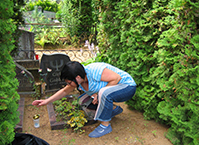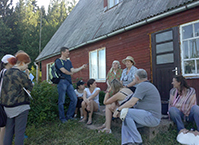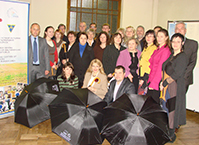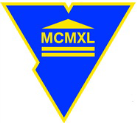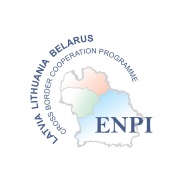E-MUSEUM “VITAMEMORIAE”: COLLECTION AND RESEARCH
Foto
To record people’s life stories, traditions, customs, rituals, rare photographs, old documents, ethnographic differences in funeral rites, etc. the researchers of Daugavpils University and Yanka Kupala Grodno State University carried out field studies in LV and BY territories: in the villages of Krāslava, Rēzekne, Daugavpils regions (Asūne, Foļvarka, Kruki, Skrudaliena, Indra, etc.) and in Belarus (Braslav and Vitebsk districts). The field studies were implemented in the framework of the project “Popularization of the Centres of Oral History in the LV – BY Cross-Border Area”, ID Nr. LLB–2–143, of the Cross Border Cooperation Programme Latvia–Lithuania–Belarus implemented within the framework of the European Neighbourhood and Partnership Instrument 2007–2013.
During the research and the expeditions, the project implementers collected, segmented, transcribed, and digitized the audio-visual materials (audio and video records, photo evidence). To make the collection of the E-Museum more complete, the field researchers and cemetery researchers of Daugavpils University and Grodno University will segment and systematize the audio-visual materials collected during oral history, cemetery research, folklore and dialectology expeditions of the previous years that until now have not been used, aiming at including the best and most valuable segments of the collection into the E-Museum.
The story tellers whose life stories make the input of the E-Museum are people of various generations, mostly elderly people. The childhood of aged people, who at present are about 80 years old, proceeded in the 1930s, therefore the segmented audio-visual units included in the E-Museum chronologically begin from 1929 and can describe only the respondents’ childhood memories. The memory of the older generation is particularly important for the anthropological and historical research – it shifts the time borders, allows for moving to the events of the past through the viewpoints of those who have experienced those times. The facts can be found in chronicles, but what the witnesses of that time can reveal give the memories colour, scent, involve one into mutual emotional experience. The witnesses of the epoch tell about the events form the viewpoint of their own experience.
To motivate the respondents to share their life stories, the project field researchers used Paul Thomson’s oral history research method – enlarged vision of social history where diverse groups of the society are brought together and share common historical experience.
The research basis is the methodology of a semi-structured interview that envisages focused (guided) reconstruction of the past events and an interviewer only helps the respondents to reconstruct the past.
The oral history collection of the E-Museum is envisaged to be used not only by specialists but also by a greatest possible range of non-specialists, therefore, departing from the academic tradition envisaging a complete script and transcript (written transcription of an audio or video record) of life stories, the project experts agreed to segment 360 most vivid, colourful, expressive, unusual, typological or extraordinary audio-visual units (photo, video and audio testimonies) – thematically complete excerpts, and to systematize them according to the thematic plan that would encompass both the historical processes of the 20th century (from the 1920s-30s) and the most essential events of an individual’s life.
ACCESSIBILITY OF THE COLLECTION
The interviews included into the collection are arranged according to the principle of historicism, anthropologism and personalia, indicating the author’s name and the interviewer’s name and surname.
-
Vasili Dzemyanovich: Free time (after the War)
Did you organize dancing?
Yes, we had dancing, but what can I say, only on holidays.
Only on holidays?
On Sundays.
Was every Sunday a holiday or not?
Every one. Every Sunday. It was a day off. …
Categories: Holidays and traditions, Vasili Dzemyanovich
-
Vasili Dzemyanovich: Drinks (after the War)
People started to drink only under Khruschev? Did they drink alcohol before?
Yes, of course. Before that only «NKVD» (People's Commissariat for Internal Affairs) and «militsiya& …
Categories: Holidays and traditions, Vasili Dzemyanovich
-
Antоnina Radzetskaya: About school
What city did you go to school in?
Well, over there, in Smolensk region, in Krasnaznamya.
How many forms did you complete in school?
Four. I completed four forms. Later on we moved away because we …
Categories: School, Antonina Radzetskaya
-
Antanina Radzetskaya: About evacuation from Smolensk
And later on they asked us to leave, when the father was arrested and put into Vrotslav prison of Smolensk oblast, so they asked us to move away from here. They could arrest us and kill. Gukau Yuri …
Categories: Mode of life, Antonina Radzetskaya
-
Antonina Radzetskaya: About father’s arrest
Was your father off to the front during the war?
He was linked with the partisans. When he came home to take some food, to his sister’s house near the forest, their neighbors squeal on him. He …
Categories: Parents, Mode of life, Antonina Radzetskaya
-
Vladzimir Prashleutos: Soltyses, partisans, White Poles
Please tell me was there any German permanent post or police post here?
They told there were both a Gestapo and … a permanent post… But there were just few persons, about fifteen or …
Categories: Mode of life, Vladzimir Prashleutos
-
Vladzimir Prashleutos: Parents
My father was a Lithuanian, my mother was a local. Father came here in 1934. Mother lived permanently here. My mother could speak the Jewish language.
Where did she learn it?
When she was twelve …
Categories: Parents, Vladzimir Prashleutos
-
Vladzimir Prashleutos: Traditions after the War
Each nation has its own traditions. I wasn’t told anything about traditions. And there was a cemetery over there – you see – in the March 8 Street, there is a waste land there now. …
Categories: Holidays and traditions, Vladzimir Prashleutos
-
Ideya Belskaya: Family relations
I was thirteen when the war began. Who we were at this age… But now when someone is thirteen he is a complete child, a spoiled brat. A doll. Well. But at that time we already… for …
Categories: Family, Ideya Belskaya
-
Ideya Belskaya: About father
My father was a commandant of the Red Army. And who was he when he started his adult life? He was a swineherd. He worked for a land lord in village Ligaty near Kobrin, Brest Oblast. You see. Father …
Categories: Parents, Ideya Belskaya


